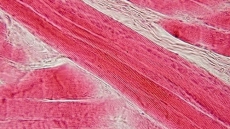In a bid to track the origin of diseases such as cancer, researchers have developed a system that generates a unique barcode in the DNA of all blood stem cells and their progenitor cells, allowing scientists to see how blood forms.
The new tool showed that the billions of blood cells that the body produces each day are made not by blood stem cells, but rather their less pluripotent descendants, called progenitor cells.
This biological inventory system makes it possible to determine the number of stem cells/progenitors being used to make blood and how long they live, as well as answer fundamental questions about where individual blood cells come from.
"I wanted to figure out a way to label blood cells inside the body, and the best idea I had was to use mobile genetic elements called transposons," said lead researcher Fernando Camargo, an associate professor at the Harvard University.
A transposon is a piece of genetic code that can jump to a random point in DNA when exposed to an enzyme called transposase.
The location in the DNA where a transposon moves acts as an individual cell's barcode, so that if the mouse's blood is taken a few months later, any cells with the same transposon location can be linked back to its parent cell, the study conducted in mice showed.
With the new tool "you can imagine being able to look at tumour progression or identify the precise origins of cancer cells that have broken off from a tumour and are now circulating in the blood", maintained co-researcher Jianlong Sun from the Harvard University.
The study appeared in the journal Nature.





